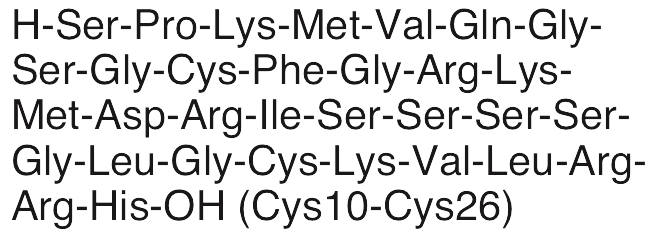Description
Nesiritide is recombinant B-type natriuretic peptide (BNP). BNP is often clinically used as a biomarker for cardiovascular problems like ventricular failure, stroke, and myocardial infarction. Nesiritide exhibits immunosuppressive, anti-inflammatory, and cardioprotective activities. Nesiritide exhibits mixed effects when administered clinically in the treatment of heart failure. Nesiritide decreases CD8+ T cells and levels of TNF-α, IL-1α, and IL-6. This peptide inhibits angiotensin II (ATII)-induced hypertrophy in animal models. Nesiritide suppresses generation of ROS, prevents decreases in the mitochondrial membrane potential, increases levels of Bcl-2, and decreases levels of Bax, inhibiting apoptosis and protecting cardiomyocytes against ischemia/reperfusion-induced injury. The additional diuretic, natriuretic, and vasorelaxant effects of nesiritide are mediated by its binding of the natriuretic peptide receptor A (guanylate cyclase A).
